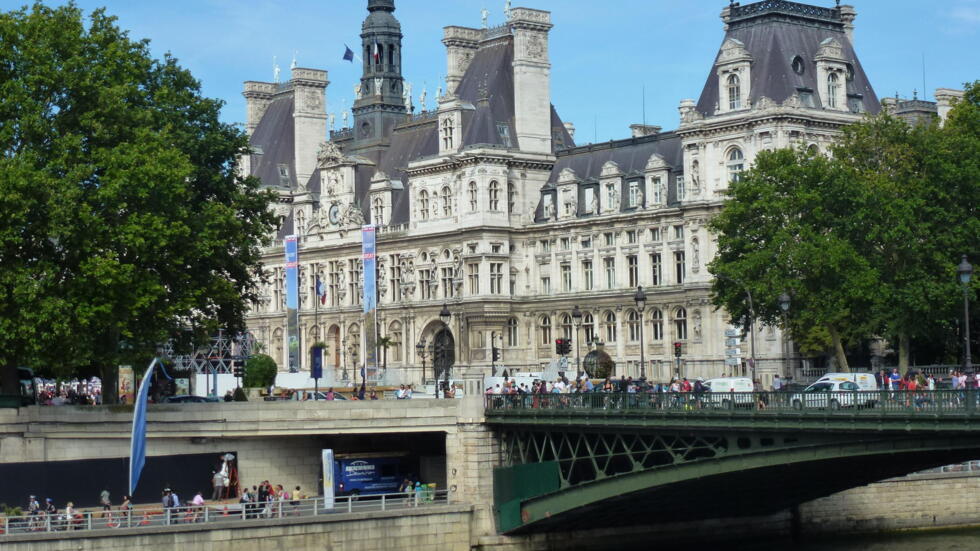Making Paris more resilient, getting it to change its ways [interview]
Sebastien Maire is Paris' first ever Chief Resilience Officer, working to help the city weather the effects of climate change, but also air pollution and even terrorism. He's had to push the city, long used to working in its own way, to adopt new ways of approaching infrastructure and budgets.
Issued on: Modified:

A resilient city or territory can continue to function in the face of crises, like heatwaves, floods or even terrorist attacks. Introducing resilience is about dealing with shocks of any kind – natural or human-made.
Sebastien Maire's job was conceived of by the 100 resilient cities project from the Rockefeller Foundation, which first supported his position in 2013. Today, Maire is part of the city's administration, its chief officer for ecological transition and resilience.
(This is an edited version of an interview that you can hear in the Spotlight on France podcast. Subscribe here on iTunes, or Google Podcasts.)

Q: When it comes to climate change, your work is less on stopping it through greenhouse gas emission reductions, and more on dealing with the consequences…
Sebastien Maire: We need to work on adaptation, because we have started to face – and we are increasingly going to face – the consequences of climate change.
Paris is a mineral city, which does not work with heatwaves. By 2050 we might face temperatures of 55 degrees in the shade, which will last a month or more.
This summer’s heatwave was horrible for everyone. What would happen if it’s ten degrees hotter? Our buildings and public spaces are not at all ready to stand it.
Q: Would you say that addressing the effects of climate change is the main focus of resilience efforts?
SM: The idea of resilience is to consider that there is not just one issue. Climate is important, but if we could wave a magic wand and fix our carbon emission problems, that would not be enough – if we continue to destroy biodiversity, for example.
We have defined six risk areas for Paris, which include climate disorder, but also social and economic inequality, terrorism, air pollution, flooding linked to the Seine river, and territorial governance.

Q: How do you adapt a city for heatwaves?
SM: Our first major project is to renovate school courtyards, to turn them into "cool islands". That’s huge, because Paris has more than 700 schools, representing 70 hectares of land.
Providing areas of cooler temperatures will benefit both the children during the day, and elderly and vulnerable people after school and on weekends.
But that’s not enough. We’re trying to replicate this oasis concept in the streets. We need to change building materials, create shade, encourage breeze.
I want to prioritise nature-based solutions over tech ones, because tech brings vulnerability most of the time. If we leave nature alone, it’s really efficient for many things.

Q: Your office doesn’t have its own budget. You work with other divisions to point their budgets towards ways to make the city more resilient. How welcome have your efforts been?
SM: The finance people appreciate the approach! It used to be that to have a sustainable building, you had to spend 20 percent more to install new materials. The resilience approach is – give me the budget you have, and I do my best with it.
It’s another way to design policies and budgets, enlarging the multiple benefits, or the saved costs.
This approach is different from the administrative culture. And that’s complicated.
Q: Is that culture uniquely French? There is the stereotype of French bureaucracy…
SM: At first I think we had a specificity in France regarding our conservative administrative way of working. But I’ve since had the chance to see how it works in other cities.
And in this international programme, with 100 cities and a big American foundation, I have seen that bureaucracy and reporting is much worse than in my daily life in Paris!
The difference is that here in France, policies are politicised. I can conduct my mission here in Paris because the mayor, herself, supports it a lot. I can even say that without this political support, it would not be possible.
In French public organisations, if the mayor or the head of the executive, supports it, it will be done, whatever happens.
Q: That means you are vulnerable to political change. There are local elections in France in 2020, and the current mayor of Paris is up for re-election. The tide could change, for you…
SM: I don’t think so. The issues we’re talking about are the main issues for anyone, whoever is going to be mayor. A mayor who does not address these issues does not deserve to be elected.
This interview was produced for the Spotlight on France podcast.
Daily newsletterReceive essential international news every morning
Subscribe